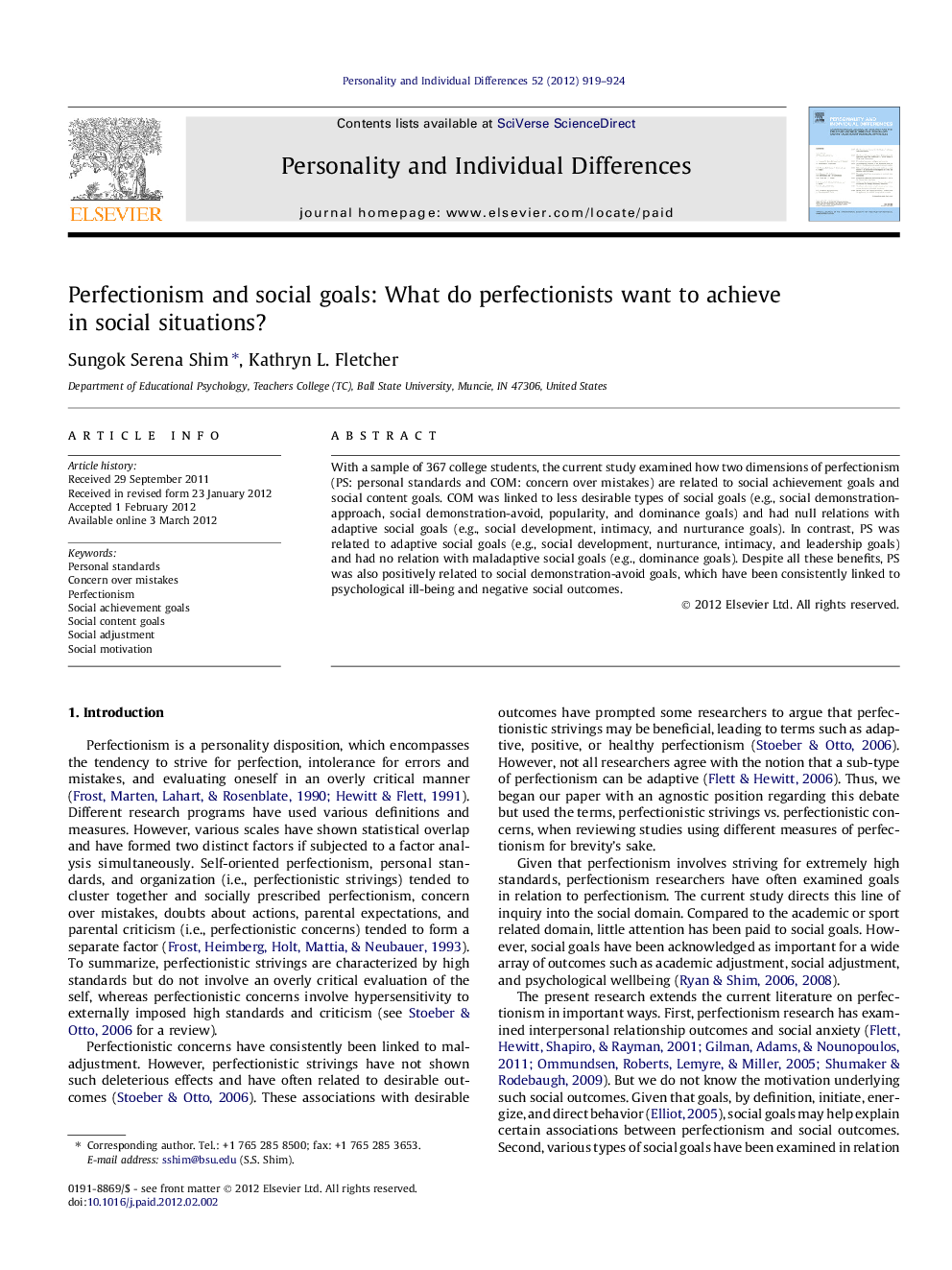| Article ID | Journal | Published Year | Pages | File Type |
|---|---|---|---|---|
| 891409 | Personality and Individual Differences | 2012 | 6 Pages |
With a sample of 367 college students, the current study examined how two dimensions of perfectionism (PS: personal standards and COM: concern over mistakes) are related to social achievement goals and social content goals. COM was linked to less desirable types of social goals (e.g., social demonstration-approach, social demonstration-avoid, popularity, and dominance goals) and had null relations with adaptive social goals (e.g., social development, intimacy, and nurturance goals). In contrast, PS was related to adaptive social goals (e.g., social development, nurturance, intimacy, and leadership goals) and had no relation with maladaptive social goals (e.g., dominance goals). Despite all these benefits, PS was also positively related to social demonstration-avoid goals, which have been consistently linked to psychological ill-being and negative social outcomes.
► Concern over mistakes relates to social demonstration-approach and -avoid goals. ► Concern over mistakes relates to popularity and dominance goals. ► Personal standards relate to nurturance and intimacy goals. ► Personal standards relate to social development and demonstration-avoid goals. ► All sub types of perfectionism may involve drawbacks in terms of social goals.
